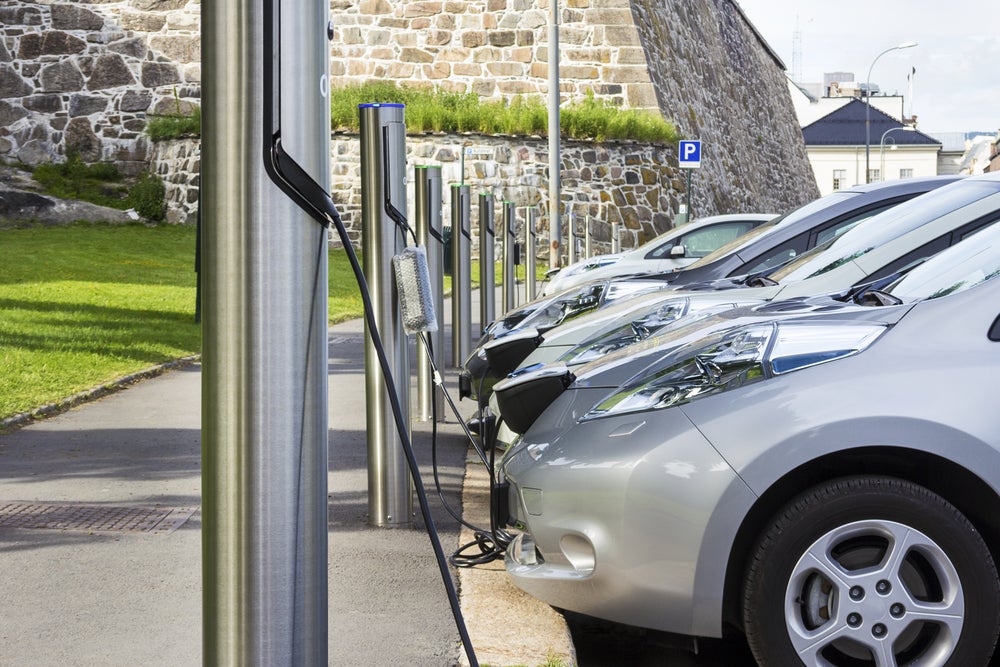Three “super-leverage points” could catalyse decarbonisation in sectors covering 70% of global greenhouse gas emissions, according to a new report presented today (20 January) at the World Economic Forum in Davos.
Mandates for the sale of electric vehicles (EVs), mandates requiring “green ammonia” to be used in the manufacture of agricultural fertilisers, and public procurement of plant-based proteins could cause a domino effect leading to cheaper batteries to help solar and wind power scale-up in the electricity sector, cheaper hydrogen for the decarbonisation of shipping and steel production, and reduced incentives for deforestation, conclude the co-authors, consultancy Systemiq and the University of Exeter.

The Breakthrough Effect: How to trigger a cascade of tipping points to accelerate the net zero transition is a contribution to the Systems Change Lab convened by the Bezos Earth Fund and World Resources Institute.
“With time running out [to limit global warming to 1.5°C], there is a need to be targeted,” Mark Meldrum, Systemiq partner and a lead author of the report, said in a statement. “Our report spotlights key opportunities to effect change that can produce huge returns in terms of decarbonisation. It identifies positive tipping points in the highest-emitting sectors of the global economy, and analyses the conditions required to trigger them. Each super-leverage point crossed raises the chance of crossing others, and could set off a cascade of positive tipping points to steer us away from a climate catastrophe.”
On reaching such a “tipping point”, a net zero-carbon solution will outcompete the high-carbon incumbent. Self-reinforcing “feedback loops” will then drive exponential growth in the adoption of the new solution at the expense of the old. History is rife with examples of positive tipping points. In 2012, US coal power peaked before it was undercut by the lower prices of renewables and gas; coal use fell below 50%, half the coal companies went bankrupt within two years and total demand is now 40% of the peak. A tipping point has already been crossed in the electricity sector, the report says, with solar and wind power accounting for more than 75% of new global electricity generation capacity built last year.
Looking ahead, the report argues that the three super-leverage points could cause a ripple effect in other sectors and catalyse net zero: first, a tipping point is “very close” in road transport, with falling costs, government policies and better infrastructure increasing the appeal of EVs over petrol and diesel cars for both manufacturers and consumers. Zero-emission vehicle mandates are a powerful tool to bring forward this tipping point, say the authors. By ramping up the production of batteries, prompting technological and cost improvements, EVs could support the transition to clean power and help decarbonise other sectors that need cheap, clean electricity.

US Tariffs are shifting - will you react or anticipate?
Don’t let policy changes catch you off guard. Stay proactive with real-time data and expert analysis.
By GlobalDataIn parallel, mandates that require the use of green ammonia (produced from hydrogen made with renewable energy) to make fertilisers could kick-start the hydrogen economy, suggests the report. As well as replacing fossil fuels in fertiliser production, this would reduce the costs of green ammonia and green hydrogen, enabling their use as fuels in shipping and steel production as well as for energy storage.
[Keep up with Energy Monitor: Subscribe to our weekly newsletter]
Finally, the report states that alternative proteins – particularly plant-based ones – can reach a tipping point by becoming cheaper than animal-based proteins, as well as matching them for taste and texture. Public procurement in places like schools, hospitals and government departments could significantly increase adoption of alternative proteins, resulting in decreased emissions from livestock farming and freeing up between 400 and 800 million hectares of land (equivalent to 7–15% of global agricultural land today). That would, in turn, decrease incentives for deforestation and provide more land for carbon storage and biodiversity.
The University of Exeter is now leading a research group working on a full State of Tipping Points report, exploring both positive socioeconomic tipping points and negative climate tipping points, for COP28 in November. “We need to find and trigger positive socioeconomic tipping points if we are to limit the risk from damaging climate tipping points,” said the university's Tim Lenton, a lead author of the report.



